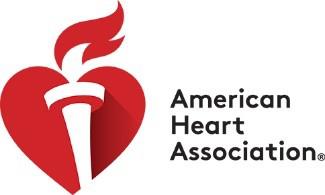Heart Attacks Aren't Cancelled, Call 911
(NewsUSA) - Even during a pandemic, such as COVID-19, other emergencies don't just go away. Heart attacks and strokes require immediate medical attention. The American Heart Association recommends that calling 911 and getting to the hospital quickly if you or a loved one are experiencing symptoms is your best chance for survival, and continues to be a safe option.
- Even during a pandemic, such as COVID-19, other emergencies don't just go away. Heart attacks and strokes require immediate medical attention. The American Heart Association recommends that calling 911 and getting to the hospital quickly if you or a loved one are experiencing symptoms is your best chance for survival, and continues to be a safe option.
It is concerning that hospitals across the United States are reporting notably fewer patients admitted for strokes and heart attacks. Medical organizations fear that many people may not call 911 or go to the hospital because they are afraid of contracting COVID-19.
However, calling 911 is the best chance for survival if you experience a heart attack or stroke, the American Heart Association emphasizes.
First responders are trained to help patients with all emergency medical conditions, even in the current pandemic. Immediate treatment of a heart attack or stroke is essential, especially since data shows that individuals with cardiovascular disease are more likely to have serious complications from the virus - even death.
Leaders of medical organizations, including the American Heart Association, the Association of Black Cardiologists, the American Academy of Neurology, the American College of Emergency Physicians, the Heart Failure Society of America, the Heart Rhythm Society, and the Society for Cardiovascular Angiography and Interventions have issued a joint statement reminding all Americans, but especially those who are at increased risk for heart attack and stroke, such as those with cardiovascular disease, that it is safe for everyone to call 911, and that it is safe for anyone to go to the hospital.
Hospitals are following protocols to sanitize, maintain social distancing, and isolate COVID-19 patients from those in the hospital for other reasons including treatment for heart attack or stroke.
The American Heart Association and other medical organizations also advise individuals with existing cardiovascular conditions to use telehealth visits to continue managing risk factors and taking medications as prescribed.
Symptoms of a heart attack can include:
* Chest discomfort.
* Discomfort in other areas of the body, such as the arms, back, neck, jaw or stomach.
* Shortness of breath, as well as breaking out in a cold sweat, nausea, or lightheadedness.
Signs of stroke can include:
* Face drooping.
* Arm weakness.
* Slurred speech, or other sudden physical difficulties.
For information on COVID-19, heart health, and the signs of a heart attack, stroke, or cardiac arrest, visit heart.org.









